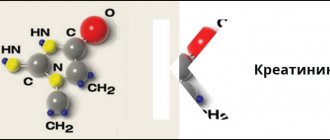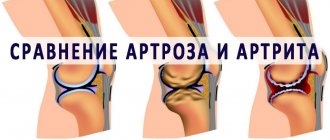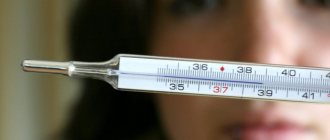Hemoglobin level is an important indicator of a man’s health, and its decrease is a good reason to see a doctor. After all, this protein performs a number of vital functions, including ensuring tissue respiration. Therefore, when its concentration in the blood decreases, changes in well-being of varying degrees occur, and in severe cases, low hemoglobin can cause the development of serious complications.
What is hemoglobin
Hemoglobin is a complex protein containing iron. Its main task is to add oxygen diffusing into the blood from the lungs and distribute it throughout the body. Giving oxygen to cells, hemoglobin attaches carbon dioxide formed by them in the process of vital activity. Then getting through the bloodstream to the lungs, it gives it away, again making room for oxygen. This is how gas exchange and tissue respiration occur. But, in addition, hemoglobin is involved in maintaining the acid-base balance, in DNA synthesis, and in the occurrence of a number of redox reactions.
To synthesize hemoglobin, the body uses iron, which comes from food and accumulates in the form of ferritin in the liver, lungs, and spleen. There is also a small amount of iron present in the intestinal mucosa. If the diet does not meet the body's iron needs, ferritin is activated. This helps maintain normal hemoglobin levels and organ function. But with prolonged deficiency, its reserves are depleted, and the concentration of hemoglobin decreases.
In men, critically low hemoglobin levels are rare, since they, unlike women, do not experience regular physiological bleeding. For the same reason, the increase in hemoglobin in men occurs faster and more effectively. But if left untreated, there is a serious risk of complications, especially if you have bad habits:
- thrombosis;
- myocardial infarction;
- stroke;
- decreased immunity;
- deterioration of cognitive functions (memory, attention);
- hypoxic coma.
Often, when low hemoglobin persists for a long time, the presence of chronic fatigue syndrome is observed.
Reasons for decreased hemoglobin levels
The main reasons for a decrease in hemoglobin levels in the blood in men are:
- reduction in the amount of iron entering the body;
- disturbances in the absorption and transport of iron throughout the body;
- a decrease in the number of red blood cells as a result of a violation of their production by the bone marrow or a shortening of life due to various circumstances.
In this case, most often a decrease in hemoglobin is due to iron deficiency in the body. The fact is that the absorption of this microelement from food is limited. Even with proper nutrition, no more than 1-1.5 mg can be absorbed per day, and if there are errors in the diet, the amount of iron entering the body cannot cover the need for it. In such cases, iron depots in the form of ferritin are used to maintain normal life functions. But its reserves are limited, and therefore, when they are depleted, the intensity of bone marrow erythropoiesis decreases. As a result, the number of red blood cells, as well as the level of hemoglobin, decrease, which indicates the development of anemia and is accompanied by the appearance of characteristic symptoms.
Thus, the causes of low hemoglobin in men can be:
- malnutrition;
- insufficient consumption of foods that are sources of iron:
- adherence to a vegetarian diet;
- diseases of the gastrointestinal tract;
- severe bleeding during injuries, operations, including hidden ones (observed with peptic ulcers of the stomach and duodenum, kidney pathologies, pulmonary siderosis, etc.);
- haemorrhoids;
- malignant tumors;
- chronic intoxication;
- vasculitis;
- systemic scleroderma;
- systemic lupus erythematosus;
- helminthiasis;
- cystic fibrosis;
- rheumatoid arthritis, etc.
Statistics show that men are more likely than women to have gastrointestinal diseases caused by Helicobacter pillory, which leads to impaired absorption of iron in the intestines and a decrease in hemoglobin.
What level of hemoglobin is considered elevated?
It would seem: if hemoglobin is so important for health, then increased hemoglobin in men should be a good sign. However, it is not. Too high hemoglobin in men signals health problems and can itself cause trouble.
An increase in hemoglobin levels in men by 20 g/l or more is considered a significant deviation from the norm . High hemoglobin in men can be a consequence of heart or pulmonary failure, intestinal obstruction, cancer, or diabetes. Low hemoglobin in men is also observed with dehydration, which can be caused by both insufficient fluid intake and too rapid loss of fluid due to vomiting or diarrhea.
Increased hemoglobin in men makes itself felt with symptoms such as
- loss of appetite up to anorexia,
- weakness and fatigue,
- deterioration of vision and hearing,
- muscle and joint pain.
Some have
- problems with the genitourinary area,
- digestive disorders,
- insomnia,
- dizziness.
High hemoglobin in men is more dangerous than many people think. With an increased hemoglobin content, the blood thickens and moves through the veins with difficulty, which can lead to the formation of blood clots, which can cause a stroke.
Since hemoglobin never increases without reason, it is necessary first to identify the underlying disease and begin treatment. While doctors get to the root of the problem, the patient himself can improve the situation somewhat and reduce the level of hemoglobin. To do this, you need to avoid foods high in iron.
- red meat,
- offal,
- beans,
- eggs,
as well as from fatty and fried foods - such unhealthy foods increase cholesterol, and the risk of blood clots increases.
Symptoms
The severity of symptoms largely depends on the level of hemoglobin: the lower it is, the more severe the anemia. Therefore, in mild cases, men may not notice changes in their well-being or not attach importance to them, since they are little expressed. In such situations, periodic weakness or increased fatigue may occur, but many attribute this to stress, age and other life circumstances. With a further decrease in hemoglobin, the situation becomes more complicated, the existing symptoms become more intense, and others appear.
Sometimes even a decrease in hemoglobin to 90 g/l is asymptomatic.
In general, a decrease in hemoglobin levels in men may appear:
- drowsiness, weakness, decreased performance;
- shortness of breath, which initially occurs due to physical exertion;
- feeling of heartbeat;
- dizziness that can lead to loss of consciousness;
- pallor of the skin and mucous membranes;
- increased irritability, aggressiveness;
- headaches of varying degrees of intensity;
- decreased appetite;
- increased brittleness of nails, the appearance of white spots and bumps on them;
- perversion of taste preferences with the emergence of a desire to eat inedible food, in particular raw meat, chalk, clay;
- developing an addiction to the smells of acetone, gasoline, perfume, etc.;
- ringing in the ears, flickering of spots before the eyes.
A symptom of decreased hemoglobin that is typical for men may be impaired erectile function.
Diagnostics
If the symptoms described above appear, especially if this is accompanied by the presence of factors predisposing to a decrease in hemoglobin, you should take a general blood test and consult a physician with its results. To confirm anemia, a repeat clinical blood test is usually prescribed. This eliminates the possibility of mistakes being made in the laboratory.
If a decrease in hemoglobin levels is confirmed, treatment for anemia is immediately prescribed. And in parallel with this, a comprehensive examination of the body is carried out in order to identify the causes of its development. This is especially important in cases where there are no obvious prerequisites for this, for example, having undergone surgery in the recent past, injuries with large blood loss, etc. For this, the following may be prescribed:
- blood chemistry;
- stool test for occult blood;
- colonoscopy;
- fibrogastroduodenoscopy;
- Ultrasound of the abdominal organs and kidneys.
Treatment for low hemoglobin
After diagnosing and determining the low level of hemoglobin in a person’s blood, treatment for this disease begins, aimed primarily at eliminating the causes of its occurrence. And since there are quite a lot of them, the treatment will be different in each specific case:
- Adjustment of diet and composition of consumed products. If hemoglobin levels are low, the diet should contain foods that are rich in iron and improve blood supply to the body, helping to increase the total red blood cell mass: red meat, vegetables and fruits.
- Prescription for daily use of dietary supplements and vitamin-mineral complexes. This therapy comes down to replenishing the lack of iron and other substances necessary for a person. In severe cases, drugs that are administered intravenously may be prescribed.
- Prescription of drugs that promote hematopoiesis. These medications help eliminate the symptoms of anemia, as well as stimulate the formation of hemoglobin in the blood and increase the number of red blood cells. Gemostimulin and its analogues can be used.
- Transfusion of blood or its components. Such therapy may be prescribed to replenish the required blood volume. Most often it is used for large blood losses.
Any therapy or complex treatment is carried out exclusively under the supervision of highly qualified hematologists. Blood tests are taken regularly to evaluate the dynamics of improvement.
How to increase low hemoglobin
Even a slight decrease in hemoglobin levels requires treatment. Otherwise, the man’s well-being will progressively deteriorate. Therefore, from the moment a general blood test is performed and low hemoglobin levels are established, it is necessary to make adjustments to the daily diet and start taking iron-containing medications. It is impossible to cope with the problem only by changing the diet and increasing the amount of iron sources in the body, since at best, as much of this trace element is absorbed from food per day as is consumed. This will not allow the formation of the necessary depots and eliminate the risk of re-development of anemia in the near future.
It is imperative that in combination with the treatment of anemia, therapy for the disease that provoked its development is prescribed. Accordingly, it will be strictly specific in each individual case.
Nutrition correction
With low hemoglobin, men are advised to increase the amount of iron-rich foods in the daily menu, as well as those containing folic acid, vitamin B12 and ascorbic acid, as they increase the quality of its absorption. These include:
- beef tongue, liver;
- white chicken, turkey, veal;
- various seafood, as well as red and black caviar;
- buckwheat, rice;
- leafy greens, cabbage, broccoli, green beans, spinach;
- legumes;
- pumpkin, tomatoes, beets;
- berries, especially black currants, blueberries, cranberries;
- fruits, in particular pomegranate, persimmon, dried apricots;
- peanut.
But when drawing up a menu, it is worth taking into account the peculiarities of iron absorption. So, you should not combine meat dishes with pasta, bread and cereals. They are recommended to be consumed with vegetable side dishes. It is also necessary to consume fermented milk products and nuts separately from other meals.
Symptoms of low hemoglobin
It is not difficult to notice a low level of hemoglobin in a person’s blood. This usually manifests itself with the following symptoms:
- pale skin color;
- the skin is dry and flaky;
- lips of a lilac shade;
- nails are brittle and peeling;
- hair is dry and brittle and falls out;
- general fatigue and weakness, fatigue, drowsiness;
- frequent fainting, headaches;
- low blood pressure, rapid heartbeat;
- body temperature rises to 37.5°C without signs of any disease;
- low appetite;
- the occurrence of constipation or diarrhea.
If the hemoglobin level is slightly reduced, then most often no obvious symptoms are observed in the body. To identify this disease, it is recommended to regularly take blood tests and visit a hematologist.
If symptoms of low hemoglobin levels appear and do not go away with improved nutrition, then you urgently need to make an appointment with a specialist and undergo an examination.










